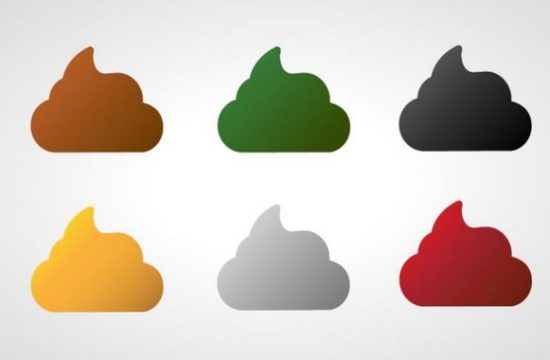Checkups are one of the paramount factors leading to good health and when it comes to the health of your baby, you need to be extra cautious in getting regular health-checkups done. Your baby’s first couple of years will need a plenty of rounds of check-ups as it is the best way to ensure your baby is growing and developing as she/he should.
But just visiting your baby’s pediatrician is not enough. You need to get all your medical questions answered to learn how to keep your baby healthy and safe. You probably have plenty of questions to ask your baby’s pediatrician, but there might be a few you hesitate or you are not aware if you should ask.
Don’t worry we have got you a list of important questions that you need to ask your baby’s pediatrician. Have a look:
Know 1: Shall the baby be bathed soon after delivery?

Pediatrician: Absolutely not, the health professional or the nurse would gently wipe the child and clear the secretions. It’d be necessary to wrap the child comfortably in preferably sterile clean cotton cloths so as to preserve his energy for maintaining the body temperature as newborns are prone to lose heat.
Frequent breastfeeding is critical to keep the baby warm. For low birth weight babies, Kangaroo Mother Care (KMC) method is crucial to keep them warm and cozy; KMC also increases milk production significantly in mothers.
Know 2: Shall the baby be fed water in the initial months?

Pediatrician: No, exclusive breastfeeding for initial six months will suffice the water and nutrition of the growing newborn, after that, liquids and soft rice/dal water can be started post 6 months age. But it’s necessary to check the baby’s growth and motions to look for if the baby is getting sufficient nutrition, complying with mother’s breastfeeding. And in case of loose stools, you may consult your pediatrician.
Know 3: How to breastfeed?

Pediatrician: It’s not a difficult task for you to breastfeed your baby; because of the affectionate bond that develops between you and your baby. All you need is confidence that you can feed your baby well.
Position: You can take any comfortable position to breastfeed your baby. You can either sit or lie down, but your back should be well supported and not lean over the baby to avoid and back pain.
Baby’s Position: Baby should be properly and comfortably wrapped in a cloth, and baby’s whole body should be supported not just the head and neck. Also, the baby should not be twisted, he/she should be turned carefully towards you, with their nose right at the level of your nipple.
Attachment: Also known as Latching, this is one crucial factor leading to proper breastfeeding. Hold your baby close to your chest and allow him to open his mouth widely and then latch onto the breast such that nipple and most of the areola (dark area surrounding nipple) are within the baby’s mouth.
Effective suckling: Your baby will suckle slowly and pause in between to swallow. You should make sure that your baby’s cheeks are full and not hollow or retracting during suckling.
Know 4: Will breastfeeding cosmetically harm the breasts?

Pediatrician: No, rather it’s one of the most effective ways to shed the extra weight gained during pregnancy, reduces the risk of breast and ovarian cancers. And if the milk is not fed, then it may lead to breast engorgement (overfilling of milk inside the breast) on second or third-day post delivery, which would be rather painful.
Know 5: Shall HIV+ mother feed the baby?

Pediatrician: Yes, She should feed her child because as the medical science is advancing there are drugs available to let her feed the child. Breastfeeding becomes very important for babies born to HIV+ mothers and should not be left without breastfeeding, or else the immediate complications of low sugar and low temperature may risk the life.
Know 6: How to manage household chores with a newborn?

Pediatrician: It’s very necessary to decide upon the priorities, and baby should be the utmost. Taking help of your elders and your husband could be very helpful. Also if you are a working mom, try to manage your schedule effectively so that you get to spend maximum time with your baby.
Know 7: How to observe if the baby is growing normally?

Pediatrician: Your pediatrician will keep a check on normal parameters like weight, height etc., which are mapped on growth charts as per WHO guidelines. Apart from this, following points would usually help mothers and fathers to keep an eye on the baby’s growth via achieving different milestones (the brackets indicate the upper limit of the time period and are adapted from WHO)
-Visual fixation (2 months)
-Vocalization (6 months)
-Sitting without support (10 months)
-Standing with assistance (12 months)
-Hands and knees crawling (14 months)
-Standing without support(17 months)
-Walking Alone (18 months)
-Single words (18 months)
Know 8: Weaning

Pediatrician: It should not be a sudden withdrawal of the child from the breast. It should be a gradual process. You may start around the age of 6 months because the mother’s milk is alone not sufficient to sustain growth beyond 6 months. Supplementing with cow’s milk, fruit juice, suji, dal, and boiled vegetables is suggested. Weaning is a very important period in the child’s development, as, during this period, proper care should be taken to prevent any infection.
Know 9: Children with special identity

Pediatrician: It’s very important for the parents to be patient and kind towards their differentially abled baby. Special education, behavioral therapy, physiotherapy, speech therapy can help a person live to his or her to fullest.
Know 10: Hand washing and kids

Pediatrician: It’s an established fact that contagious diseases spread via any means of direct contact, and hands do play a crucial role. Diseases like the common cold, hepatitis, typhoid, etc. are some of the well-known examples.
Washing with simple soap and water is sufficient to stop the spread of germs in your family. Make regular hand washing a rule for everyone, especially:
– Before eating and cooking
– After using the bathroom
– After cleaning the house
– After touching animals, including family pets.
– Before and after visiting or taking care of any sick friends or relatives
– After blowing one’s nose, coughing, or sneezing
– After being outside (playing, gardening, walking the dog, etc.)
In case of any serious health complications of your baby, consult your Pediatrician immediately and get your baby examine thoroughly.
These are some of the basic Knows related to a newborn baby, a mother generally is apprehensive of and sometimes couldn’t ask. But, it’s always beneficial to ask rather than to carry the myths and disbelief.

Happy baby caring!
1,091 total views, 3 views today


